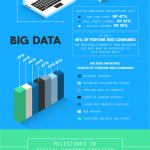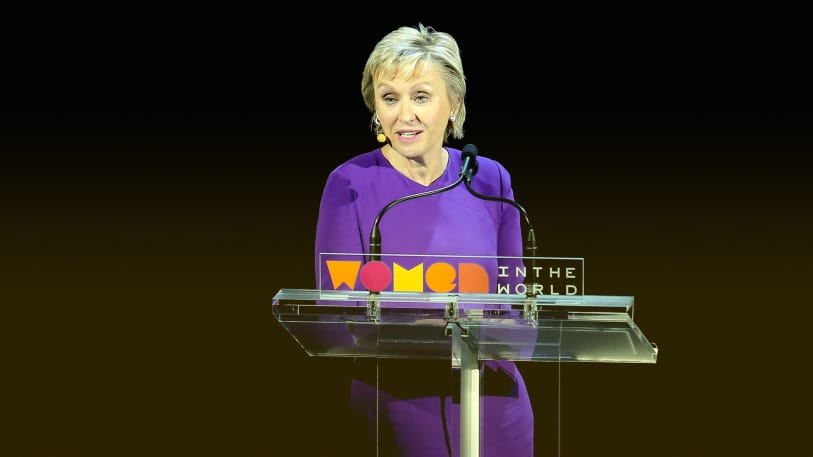Tina Brown On The Future Of Feminism
Something changed over the last few months—for the country, women, and for Tina Brown. The former Vanity Fair and New Yorker editor is putting on her eighth Women In The World summit this week, which features panels and speeches from some of the most accomplished women in the news. But this year is different.

“We’ve seen a feminist rejuvenation,” Brown says. “What is interesting and has been so fascinating to see is how Hillary Clinton’s loss motivated women in a way that her run never really did.”
Brown says that the current political situation is only one part of the complex state of women’s rights in the world, and the summit will be representative of such. Hillary Clinton is headlining the event, which also includes speakers such as Planned Parenthood CEO Cecile Richards and actress Lena Dunham.
Clinton has attended every Women in the World summit other than last year’s, Brown tells me, so it only makes sense that she’d participate in this one. “Hillary has always been deeply engaged in the rights of women globally,” Brown says, and “Women in the World has always spoken to that interest she’s always shown.” But Brown doesn’t know if Clinton will share her thoughts on her loss or the current administration. “I don’t know what she will want to say but I’m sure it will be reflective,” says Brown. “I think what women are really hoping she talks about going forward in terms of what women should now be focused on … how to protect their rights and advance their rights.”
This could be an inflection point for Brown herself. She’s been hosting this event for nearly a decade now. Since her last news media role at The Daily Beast, she’s kept a relatively low profile.
Though her company, Tina Brown Live Media, is, well, a media company, she knows she cannot do what she did for so many years. “I wouldn’t want to edit a magazine now,” she admits. Things have just changed too much. Her news consumption has “totally transitioned into digital” and she knows that things are not the same, at least in terms of the media business. During her brief stint back in media some five years ago, she says she thought to herself “am I out of my mind?”
Brown rose to prominence during a time when women were extremely underrepresented in media. She recalls being one of the only female executives at Condé Nast; “We were a lot lonelier in my era,” she says. She also mentioned being the first woman editor to get pregnant at the company. She said her pregnancy was the HR department’s first experiment into whether or not the maternity policy worked. “It wasn’t normal at that moment for women to do what we all take for granted.” Those high-ups like her who did juggle work and kids, Brown says, were in something like a secret society. This is the world that trained her. Now, thankfully, things are a bit different. “There’s a lot more solidarity,” she says
But perhaps things haven’t changed all that much. “Have you seen the front page the Daily Mail?” she asks me, referring to a picture of Nicola Sturgeon and Theresa May where both their lower legs were shown that had the headline “Never mind Brexit, who won Legs-it!” “It’s unbelievable how sexist it is, it’s really unbelievable!” she rails. “You look at it and you just think this is 1975.” The internet, she says, has powered a lot of this misogyny. Loud, anonymous people online can now “express themselves in ways they might have not done before.”
Which is why she views the Summit as such a pressing event. She says that its importance lies in the women’s stories it tells. And her role has quietly transitioned from media mogul to something else, something that may yet to be defined. Her new book, The Vanity Fair Diaries, which will depict her time at the magazine, is due out later this year.
Brown thinks that perhaps a new movement is afoot—something less regressive than what she’s seen. More women are running for office, more are energized. She wants the summit to be a catalyst. “I think what we’re seeing is the birth of a broader issue-based feminism,” she says. “It’s not the just the ‘oh let’s all be be incredibly offended about what somebody just said in a soundbite and I’ll tweet about it.’”
What she wants to see is more change happen. “I think a lot of women are feeling jolted out of their complacency.”
(18)














